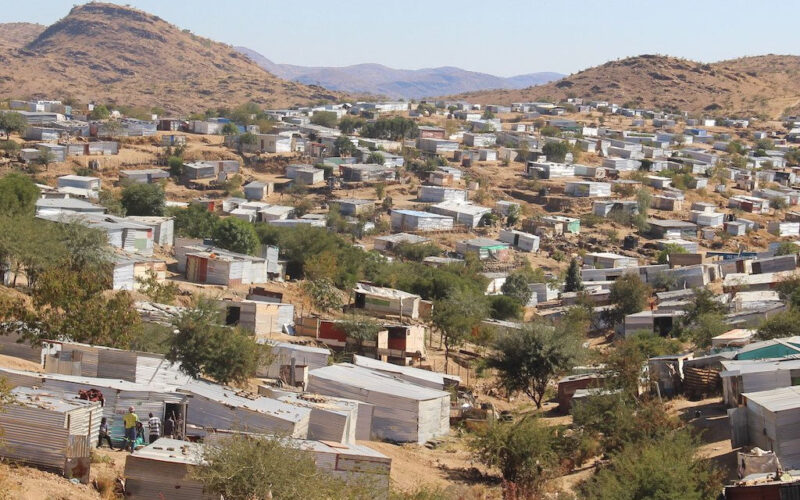Martin Endjla
Independent Bank Researcher and Economist, Josef Sheehama, has attributed the high number of shacks in urban areas to the ever-increasing land and housing prices in the country.
In an interview with Windhoek Observer yesterday, while reacting to the announcement of increased average house prices between 1990 to 2023, which went up by 1.258 percent as per Simonis Storm Securities report for August 2023.
Sheehama said exorbitant prices of land and housing are one of the main reasons why there is an increase in shacks in urban areas. This is mostly caused by the cost of land planning and servicing, as well as development and consequent high prices which are often beyond the affordability of the majority of the needy.
Adding that this drives masses into staying in shacks, a situation caused by the greed and speculative activities of those with the means to acquire and develop land.
Arguing that the pricing of land surveying, engineering designs and housing construction is unreasonably high and out of reach, even for those who are employed. The lack of credit and financial support for low-income earners is another reason why people resort to shacks.
“We need to understand that prices have been saved from falling during the pandemic by the combination of low-interest rates and holiday payments. Both points certainly have merit.
There is strong empirical evidence that low-interest rates have a major effect on prices if supported by adequate mortgage credit.
The fact that house prices have been rising quickly over the last years makes the market more vulnerable to external shocks of the economy such as a financial crisis or a sharp rise in the price of oil,” he explained.
The economist added that Namibia is experiencing a huge housing backlog which calls for accelerated housing development efforts. Because building input costs are quite high and thus negatively impact on the affordability capacity of many Namibians to access housing.
“It will take collective efforts from local authorities and other stakeholders to address Namibia’s housing backlog.
Government intervention to address the housing crisis in the country is urgently required. The Flexible Land Tenure Act of 2012, seeks to ease the planning, servicing and ownership of land in informal,” he added.Sheehama is of the view that there should be a streamlined and decentralised decision-making process away from central government to local government, and this should include institutions like the Shack Dwellers Federation of Namibia, the Build Together Programme and the approval of public-private partnerships in land servicing and housing developments as well as a smart partnership needs to be fostered with National Housing Enterprises.




